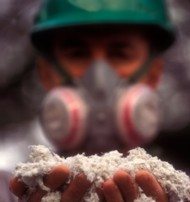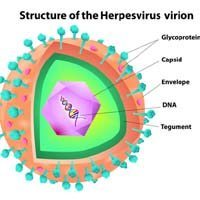BAP1 Not the Only Gene to Raise Mesothelioma Risk
 A new study is further evidence that a mutation on the BAP1 gene is not the only genetic anomaly to raise mesothelioma risk.
A new study is further evidence that a mutation on the BAP1 gene is not the only genetic anomaly to raise mesothelioma risk.
Scientists at Philadelphia’s Fox Chase Cancer Center along with a team of international researchers recently published a study of 13 malignant mesothelioma patients. All of these patients had close relatives who also had cancer. This suggested that something in their genetic makeup might raise mesothelioma risk.
Previous research suggests one gene that makes people more susceptible to mesothelioma is BAP1. People with a mutation on this gene are more likely to receive a mesothelioma diagnosis. They are also more susceptible to several other conditions.
But the people in the new study were chosen because none of them or their family members had the BAP1 mutation. The goal of the Fox Chase study was to uncover what other genes might be to blame.
Genetic Mutations Can Raise Mesothelioma Risk
Malignant mesothelioma is caused by exposure to asbestos. But most people who are exposed to asbestos never get the disease.
About 5 percent of people with heavy asbestos exposure eventually develop mesothelioma. Studies suggest that about 4 percent of them have an inherited mutation on the BAP1 gene.
BAP1 is a tumor-suppressing protein. If a person does not produce enough of it, they are more prone to mesothelioma. They are also more likely to develop moles called atypical spitz nevi and a rare type of eye cancer.
But what about mesothelioma patients who do not have the BAP1 mutation? Doctors suspect that a different genetic mutation – or a combination of them – may raise mesothelioma risk for these people.
LRRK2 Mutation Linked to Mesothelioma
The authors of the new report identified 13 patients with a family history of cancer but no BAP1 mutation. They ran sophisticated genetic sequencing tests to look for any mutations that could raise mesothelioma risk. Six of the 13 patients had one or more mutations on genes other than BAP1.
“We found that most mesothelioma patients from high-risk cancer families have one to four inherited mutations in cancer-related genes that may predispose them to the carcinogenic effects of asbestos,” said Joseph Testa, PhD, a senior member in the Cancer Signaling and Epigenetics Program at Fox Chase Cancer Center.
One mutation that appeared to raise mesothelioma risk for some of the patients was on the LRRK2 gene. Like BAP1, LRRK2 is a tumor suppressor protein. It has been linked to Parkinson’s Disease.
When the team ran subsequent tests on 30 more mesothelioma tumor samples and cell lines, they found that LRRK2 expression was lost in 60 percent of them.
“Collectively, our data suggest that in addition to being a cancer predisposition gene, loss of expression of this newly recognized tumor suppressor gene is a frequent finding in mesothelioma and may serve as a biomarker for identifying those patients most likely to benefit from specific therapies that target pathways affected by LRRK2 loss,” said Dr. Testa.
The next step is to find out how the gene becomes down-regulated in mesothelioma patients and how its loss may raise mesothelioma risk.
Source:
“International Study Identifies New Mesothelioma Predisposition Gene”, May 19, 2021, Fox Chase Cancer Center News Release, https://www.foxchase.org/news/2021-05-19-international-study-identifies-new-mesothelioma-predisposition-gene





